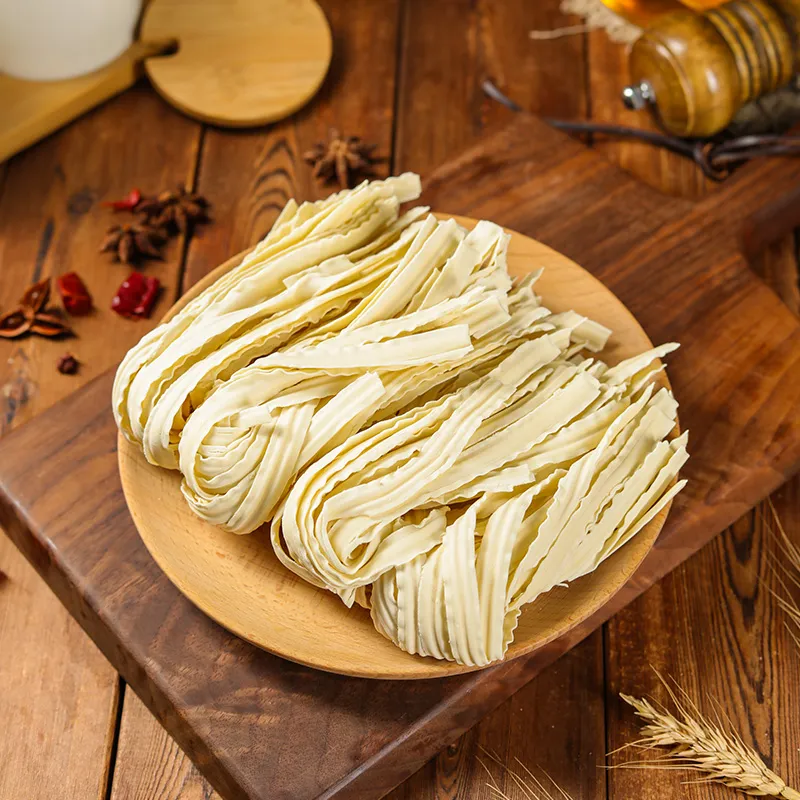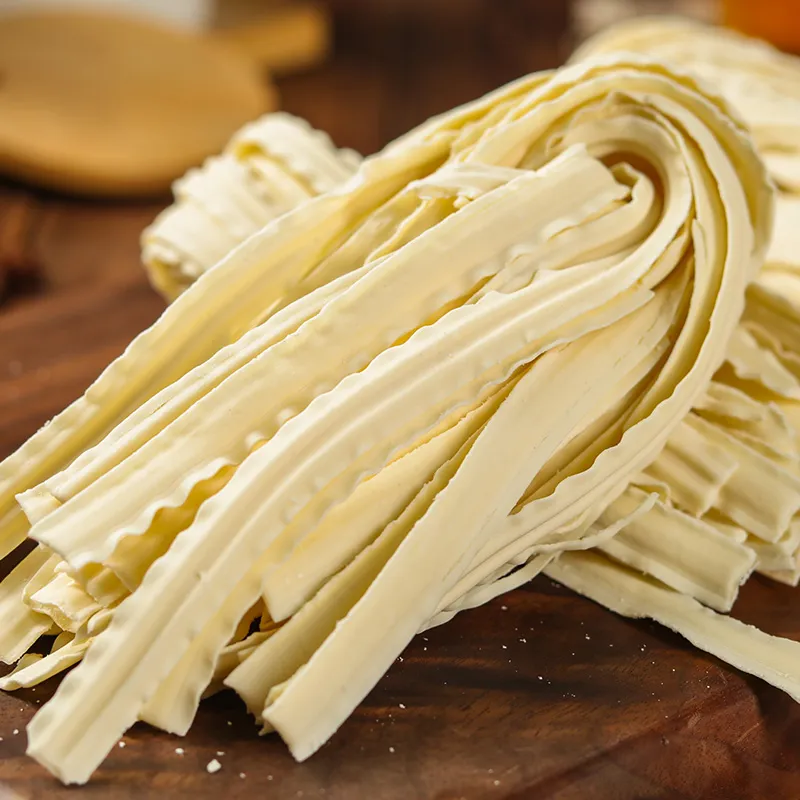Organic Instant Ramen: Healthy, Quick & Delicious Noodles Choice
With global awareness of health and sustainability rapidly rising, the organic instant ramen market is undergoing a period of profound transformation. Consumers now demand enhanced safety, traceability, nutritional values, and eco-friendly production standards for instant noodle products. In this article, we present a data-driven analysis and in-depth technical review of the Organic Sliced Noodles—a flagship product redefining quality benchmarks for organic instant ramen, organic noodles ramen, and organic buckwheat pasta worldwide.
Industry Trend Overview: Organic Instant Ramen in 2024
- Market Growth: According to Statista, the global organic instant noodles market exceeded USD 1.12 Billion in 2023, expected to grow at a CAGR of 7.9% (2024–2028).
- Clean Labels & Certifications: Increased consumer preference for USDA Organic, EU Organic, ISO 22000, and FDA-approved products.
- Main Trends: Low-sodium formulations, plant-based protein sources, gluten-free and ancient grains (like organic buckwheat).
- Sustainability: Water-efficient processes, biodegradable packaging, and renewable ingredient sourcing adopted by leading manufacturers.

Market Data Table: Organic Instant Ramen, Organic Noodles Ramen & Organic Buckwheat Pasta
| Parameter | Organic Instant Ramen | Organic Noodles Ramen | Organic Buckwheat Pasta |
|---|---|---|---|
| Primary Ingredient | Organic wheat flour, water, salt | Organic wheat, sea salt | Organic buckwheat (≥70%), organic wheat |
| Average Protein (%) | 9.0–11.5 | 9.5–11 | 12.0–14.5 |
| Production Process | Steam, dehydration (hot air/non-fried), cutting | Artisanal rolling, air-dry | Rolling, low-temp drying |
| Texture | Springy, smooth | Chewy, robust | Earthy, al dente |
| Certifications | USDA, EU Organic, ISO 22000 | Non-GMO, BRC, ISO 22000 | EU Organic, FDA, Gluten-Free* |
| Shelf Life | 9–14 months | 6–10 months | 7–12 months |
| Sodium/100g (mg) | 250–390 | 220–350 | 95–150 |
| Main Applications | Quick meals, foodservice, convenience retail | Restaurants, premium retail, meal kits | Healthy retail, gourmet, vegan/organic shops |
Manufacturing Process Flow: Organic Instant Ramen (Focusing on Organic Sliced Noodles)
- Raw Material Inspection (ISO 22000, FDA standards)
Organic wheat flour, water, natural sea salt verified for purity and organic status. - Dough Preparation & Kneading
Fully automated mixers ensure uniform hydration. - Lamination & Slicing
Precision CNC rollers transform dough into thin, even sheets; automatic slicers produce regular noodle strips. - Steaming
High-temp (100–105°C, 2–3min) steaming for starch gelatinization—key to springy texture. - Cutting & Arrangement
Computer-guided systems cut noodles precisely, optimizing thickness and length per specification. - Drying / Dehydration
Low-temp hot air (45–55°C, 6–8hr) or vacuum drying. No frying—retains nutrients, minimizes acrylamide formation. - Packing & Quality Assurance
Automated flow-wrapping; X-ray and metal-detecting units screen for contaminants. Each lot batch tracked digitally per ISO 22000.

Materials, Manufacturing & Testing: Why Organic Sliced Noodles Stand Out
- Materials: Certified organic high-gluten wheat (protein ≥10.2%), mountain spring water, no artificial colorants, non-GMO.
- Manufacturing: German-imported lamination lines (cast-rolling, multi-stage kneading), precision CNC slicing for thickness tolerance ±0.2mm, low-temperature dehydration and nitrogen flushing to extend shelf life.
- Testing & Inspection: Complies with ISO 22000, FDA CFR Title 21, supports full traceability, HACCP-monitored allergen and pathogen control, batch-by-batch ATP & heavy metals analysis.
- Durability: Shelf-stable 12 months (at 18–22°C), anti-mold packaging, resistant to breakage (drop-test certified).
- Industrial Sectors: In addition to premium retail and F&B, products are adopted by institutional catering, airline meal services, export/distribution companies, and meal kit brands requiring rigorous supply chain standards.
- Energy & Sustainability: 98% renewable power, water recycling in production, paper-plastic hybrid recyclable packaging.
Key Technical Parameters — Organic Sliced Noodles
| Parameter | Value/Range | Testing Standard |
|---|---|---|
| Type | Sliced (Non-fried, air-dried) | ISO 7304-1:2016 |
| Protein (%) | 10.2–11.2 | GB 5009.5-2016; Kjeldahl |
| Moisture (%) | ≤ 10.0 | ISO 5537 |
| Thickness (mm) | 0.95 ± 0.2 | Digital caliper |
| Cooking Time (min) | 4–6 | In-house QC SOP v3.3 |
| Heavy Metals (Pb, As, Hg, Cd) | ND (≤0.015mg/kg) | ISO 21424:2018 |
| Sodium (mg/100g) | 275 ± 18 | ISO 5398 |
| Standard Package | 200g, 400g vacuum bags | - |
| Shelf Life | 12 months | ISO 22000 |
Competitive Comparison: Leading Organic Instant Ramen Manufacturers (2024)
| Brand | Product | Key Features | Certifications | Global Distribution |
|---|---|---|---|---|
| Organic Sliced Noodles (JX Semi-dry Noodles) |
Organic Instant Ramen | High gluten, steam & air-dried, CNC slicing, compostable pack | ISO 22000, FDA, EU Organic | Asia, Europe, N. America |
| Dr. McDougall’s | All Natural Ramen | Non-fried, vegan soup base, gluten-free options | USDA, Kosher, Non-GMO | US, Canada, Asia |
| Wai Wai Bio Plus | Bio Organic Noodles | Air-dried, zero preservatives, vegan | EU Organic, FSSC 22000 | Europe, Asia |
| Hakubaku | Organic Buckwheat Pasta | 70%+ buckwheat, authentic Japanese soba, gluten-free | JAS, EU Organic | Asia-Pacific, US, EU |
Custom Solutions & Private Label Services
- OEM/ODM: Tailored recipes (high-protein, gluten-free, low-sodium), packaging design, batch coding, and global regulatory consulting.
- Bulk/Industrial Supply: Custom cut sizes (200mm, 250mm), moisture
- Labelling Support: FDA-compliant nutrition panel generation, EU allergen labelling.
- Supply Assurance: Contract manufacturing with up to 18-month rolling delivery and inventory forecasts, GS1 digital traceability.
- Consulting: Ingredient sourcing, sustainable packaging, and retail market entry analysis from a technical team with 10+ years EEAT credentials.
Application Scenarios: Organic Instant Ramen In Real Industries
AirAsia Premium Meals Program, 2023–2024 fiscal year
Challenge: Strict safety, short prep-time, global provisioning.
Solution: Organic Sliced Noodles integrated into 24,000+ in-flight meal sets/month.
Results: Reduced allergen recalls (0 in 12 months), enhanced passenger survey scores (+17%), cut kitchen wastage by 9%.
GlobalHealthMarts, 2022–2023
Objective: Launch organic product lines for health-oriented consumers.
Outcome: Deployed organic instant ramen—drove 38% YOY volume growth in “healthy meals” subcategory; consumer reviews on taste/texture 4.8/5 avg.
Certifications & Authority
- ISO 22000 certified for food safety management systems
- FDA compliance: Meets CFR Title 21 for food manufacturing and packaging safety
- EU Organic Regulation (EC) No 834/2007
- Ongoing trust & supply relationships with 25+ global distributors and meal kit brands since 2010
- Transparent, published lab results—heavy metals, pesticide residues, microbe counts—audited annually by SGS
FAQ: Expert Technical Questions on Organic Instant Ramen & Sliced Noodles
Logistics, Warranty, & Customer Support
- Production Cycle: 7–15 days for regular items; up to 25 days for custom/private label projects.
- Minimum Order: 500kg (bulk), 5,000 retail packs.
- Warranty: Full replacement/credit for any batch failing shelf life, microbiology, or allergen standards (with 3rd party test report).
- After-sales Service: Dedicated account managers, 24h technical support, rapid sample re-testing, international logistics handling (DHL/UPS partners).
- Documentation: MSDS, COA, Certificates of Origin, and ISO/FDA papers shipped with goods.
Summary: The Future of Organic Instant Ramen & Sustainable Noodles
As industry demand evolves, organic instant ramen and derivatives like Organic Sliced Noodles will drive innovation through technology, eco-friendly processes, and stringent quality control, meeting both large-scale and specialized application needs worldwide. With dual-track ISO/FDA compliance and profound engineering know-how, suppliers are set to transform the healthy convenience food landscape.
- GrandViewResearch: Instant Noodles Market Size, Share & Trends Analysis Report
- Statista: Global Instant Noodles — Industry Data & Forecasts 2024
- Wiley Online Library: “Quality characteristics and acceptability of organic wheat, buckwheat, and legume noodles”
- Food Safety Magazine: Comparing ISO, FDA, and Third-Party Food Safety Certifications
-
Is Whole Wheat Pasta Healthy?NewsMay.30,2025
-
Are Soba Noodles Good for Weight Loss?NewsMay.30,2025
-
Are Buckwheat Soba Noodles Healthy?NewsMay.30,2025
-
Are Buckwheat Soba Noodles Gluten Free?NewsMay.30,2025
-
Are Buckwheat Noodles Good for You?NewsMay.30,2025
-
A Healthy Way to Savor Soba and Spicy FlavorsNewsMay.30,2025
-
What Are Lanzhou Noodles?NewsMay.30,2025
Browse qua the following product new the we

















































































































